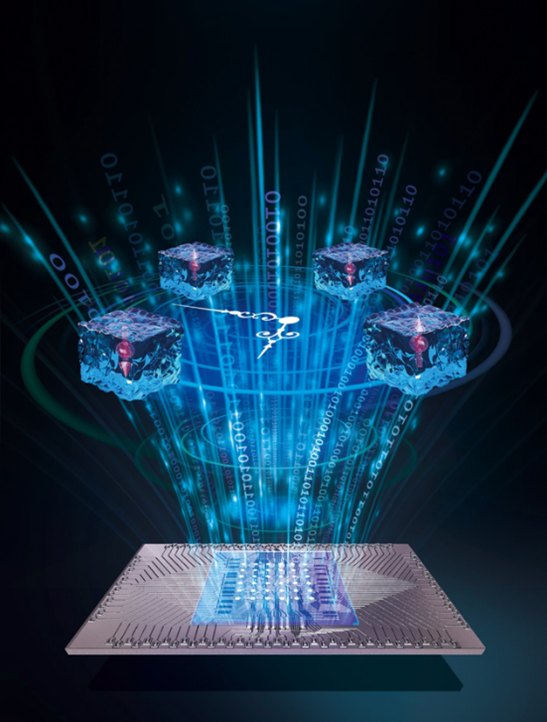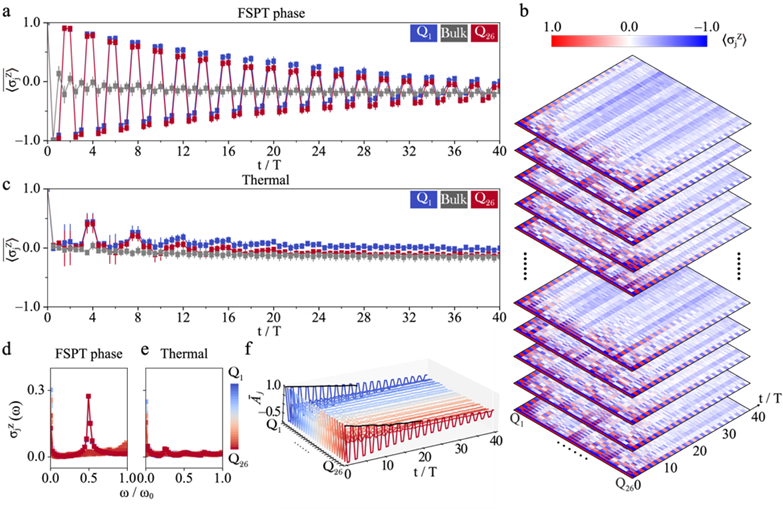Prof. Dongling Deng’s team at Tsinghua University, in collaboration with researchers from Zhejiang University and others, has experimentally observed signatures of non-equilibrium Floquet symmetry-protected topological (SPT) phases with a programmable superconducting quantum processor for the first time, according to a paper recently published in the scientific journalNature.

Quantum many-body systems away from equilibrium host a rich variety of exotic phenomena, and many of them are forbidden by equilibrium thermodynamics. One of those paradigmatic examples is the discrete time crystals, where time-translational symmetry is spontaneously broken in periodically driven systems. Signatures of discrete time crystals have been reported in various experiment platforms including trapped ions, solid-state spin systems, ultracold atoms and superconducting processors.
In contrast to previously reported conventional time crystals, Tsinghua scientists and their collaborators have reported the observation of a distinct type of non-equilibrium state of matter, Floquet SPT phases, which are implemented through digital quantum simulation using an array of programmable superconducting qubits. They observed robust long-lived temporal correlations and subharmonic temporal response only at the boundaries and not in the bulk over up to 40 driving cycles, and exhibited that the subharmonic response of boundary observables is independent of the initial state. In addition, they experimentally demonstrated that the Floquet SPT phases are robust to small symmetry-respecting perturbations, and mapped out a phase boundary between the Floquet SPT phase and the thermal phase.

The interplay between topology and discrete time crystals gives rise to the new non-equilibrium phase of matter--topological time crystal, which enriches the types of discrete time crystals and expands our understanding of the quantum world. The digital quantum simulation approach explored in this experiment is generally applicable to the simulation of a wide range of non-equilibrium systems.
The corresponding authors of the paper are IIIS Assistant Professor Dongling Deng and Research Professor Zhen Wang from Zhejiang University. Co-first authors are PhD students Wenjie Jiang from IIIS, Xu Zhang and Jinfeng Deng from Zhejiang University. Other authors include researchers from the group of superconducting quantum computation at Zhejiang University, Prof. Alexey V. Gorshkov from University of Maryland, Dr. Fangli Liu from QuEra, Prof. Thomas Iadecola from Iowa State University and Prof. Zhexuan Gong from Colorado School of Mines. This work was partially supported by the National Natural Science Foundation of China, the National Basic Research Programme of China, Tsinghua University Start-up Fund and the Shanghai Qi Zhi Institute.
Link to the paper:https://www.nature.com/articles/s41586-022-04854-3
Editor: Li Han

